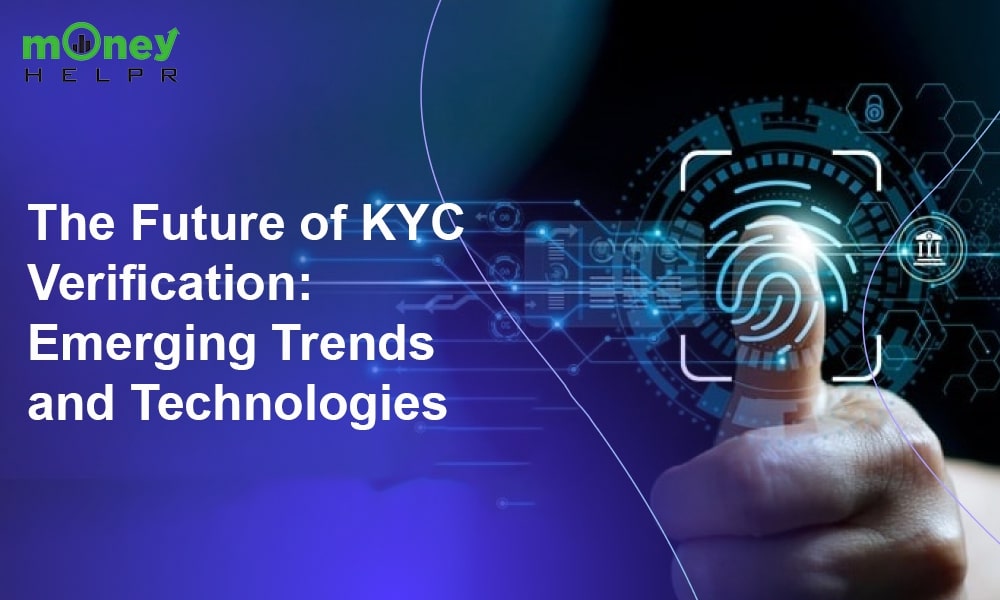KYC Innovations have brought new evolution in any small or big business sectors. In today’s digital landscape, Know Your Customer (KYC) processes have become essential for businesses to verify the identities of their customers and comply with regulatory requirements. With advancements in technology, innovative solutions are revolutionizing the way KYC verification is conducted. This blog explores the emerging trends and technologies that are shaping the future of KYC, offering exciting possibilities for improved efficiency, accuracy, and user experience.
Exploring the Evolution of KYC Verification
In recent years, several trends and technologies have emerged, transforming the traditional KYC verification process. These innovations hold the potential to enhance security, streamline operations, and provide a seamless user experience. Let’s delve into some of the key advancements revolutionizing the future of KYC.
1. Biometric Authentication: The Rise of Facial Recognition and Fingerprint Scanning
Biometric authentication, such as facial recognition and fingerprint scanning, is gaining prominence in KYC verification. These technologies offer a high level of accuracy and security by validating an individual’s unique biological features. Biometric data can be easily captured and verified remotely, allowing for convenient and frictionless KYC processes.
2. Artificial Intelligence and Machine Learning: Automating KYC Processes
AI and machine learning technologies are increasingly being employed to automate various aspects of KYC verification. These systems can efficiently analyze vast amounts of data, detect anomalies, and flag potential risks. AI-powered solutions not only enhance the speed and accuracy of KYC processes but also enable continuous monitoring to identify suspicious activities in real-time.
3. Blockchain Technology: Securing and Sharing KYC Data
Blockchain, known for its decentralized and immutable nature, holds tremendous potential for KYC verification. It allows for secure storage and sharing of customer information across multiple organizations, eliminating the need for repetitive verifications. With blockchain-based KYC, individuals have better control over their data while reducing the administrative burden on businesses.
4. Remote Identity Verification: Digital Onboarding and KYC
The rise of remote identity verification methods is transforming the way customers are onboarded. Digital solutions enable individuals to verify their identities remotely, eliminating the need for physical visits and cumbersome paperwork. Through mobile apps or web-based platforms, customers can capture their identity documents, provide facial biometrics, and complete the KYC process swiftly and conveniently.
5. Robotic Process Automation (RPA): Streamlining Data Entry and Validation
RPA is being utilized to automate manual data entry and validation tasks involved in KYC processes. By leveraging software robots, businesses can reduce human error, improve efficiency, and expedite the verification process. RPA also enables seamless integration with existing systems, making it easier to extract, validate, and update customer data from various sources.
6. Mobile KYC Solutions: Convenience and Accessibility on the Go
Mobile KYC solutions are gaining popularity due to their convenience and accessibility. Mobile apps equipped with advanced verification technologies allow users to complete the KYC process using their smartphones. This enables customers to onboard and access services from anywhere at any time, without the need for physical visits or extensive paperwork.
7. Enhanced Data Security and Privacy Measures
Innovations in KYC are placing a strong emphasis on data security and privacy. Encryption techniques, secure cloud storage, and data anonymization are being implemented to protect sensitive customer information throughout the verification process. Additionally, compliance with regulations such as the General Data Protection Regulation (GDPR) ensures that customer data is handled with utmost care.
8. User-Friendly Interfaces and Self-Service Options
KYC done innovations is prioritizing user experience by providing user-friendly interfaces and self-service options. Simplified and intuitive interfaces guide customers through the verification process, reducing confusion and frustration. Self-service options enable individuals to manage their KYC profiles, update information, and control consent preferences, empowering them with greater control over their data.
9. Integration of Open Banking APIs for KYC
Open Banking APIs are being integrated into KYC processes, allowing businesses to access customer data securely with their consent. This integration streamlines the KYC process by retrieving relevant financial information directly from the customer’s bank account. Open Banking APIs enhance data accuracy and speed up the verification process, minimizing manual data entry and potential errors.
10. Continuous Monitoring and Risk Assessment
Rather than treating KYC verification as a one-time process, innovative technologies enable continuous monitoring and risk assessment. By leveraging data analytics and AI algorithms, businesses can monitor customer activities, detect suspicious patterns, and assess risks in real-time. This proactive approach helps identify potential fraudulent activities and ensures ongoing compliance with regulatory requirements.
11. Augmented Reality (AR) for Remote Identity Verification
Augmented Reality is being utilized to enhance remote identity verification processes. By leveraging AR technology, individuals can scan their physical identity documents using their smartphones or AR-enabled devices. This enables real-time document verification, ensuring the authenticity of the ID and streamlining the KYC process without requiring physical document submission.
12. Digital Identities and Self-Sovereign Identity (SSI)
Digital identity solutions and the concept of self-sovereign identity are gaining traction in KYC processes. These solutions enable individuals to have more control over their personal data by storing it in a secure digital wallet. With self-sovereign identity, individuals can selectively share their verified data with businesses, enhancing privacy and reducing the need for repetitive verifications.
13. Voice Recognition and Speech Analysis
Voice recognition technology and speech analysis algorithms are being employed to enhance KYC verification. By analyzing the unique characteristics of an individual’s voice, such as pitch, tone, and rhythm, voice recognition systems can verify the authenticity of the speaker. This technology enables convenient and secure remote verification, particularly in call center environments.
14. Enhanced Data Analytics for Risk Profiling
Advanced data analytics techniques are utilized to create comprehensive risk profiles for KYC verification. By analyzing various data points, such as transactional behavior, social media presence, and external data sources, businesses can gain deeper insights into the risk associated with an individual. This enables a more informed decision-making process and helps in identifying potential risks more effectively.
15. Collaboration and Shared KYC Services
Collaboration and shared KYC services are emerging as a trend in the industry. Financial institutions and other regulated entities are partnering to establish centralized KYC databases and platforms. This collaboration allows for the sharing of verified customer data, reducing duplication of effort and improving efficiency while maintaining data security and privacy.
16. Integration of Big Data and Open Source Intelligence (OSINT)
The integration of big data and open-source intelligence (OSINT) in KYC verification enables businesses to gather and analyze vast amounts of publicly available data. This data can provide valuable insights into an individual’s identity, background, and potential risks. By harnessing big data and OSINT, businesses can enhance the accuracy and efficiency of their KYC processes.
17. Cross-Border KYC Solutions
As global transactions increase, cross-border KYC solutions are becoming more crucial. Innovative technologies facilitate the exchange of customer information between different jurisdictions, ensuring compliance with local regulations while simplifying the onboarding process for customers operating internationally.
Conclusion
The future of KYC verification is marked by a multitude of innovations and technologies that aim to enhance security, streamline processes, and improve the user experience. From augmented reality and digital identities to voice recognition and shared KYC services, these advancements offer exciting possibilities for more efficient and robust verification procedures. By embracing these innovations, businesses can stay ahead in an increasingly digital and interconnected world while meeting regulatory requirements and building trust with their customers.
As the industry continues to evolve, platforms like moneyhelpr.com are at the forefront of leveraging these innovative KYC technologies to provide comprehensive and user-friendly solutions for individuals and businesses. With their expertise in the field, moneyhelpr.com offers a seamless and secure KYC experience, ensuring compliance while simplifying the verification process. Embracing these technologies and partnering with platforms like moneyhelpr.com can empower organizations to navigate the ever-changing landscape of KYC verification successfully.

